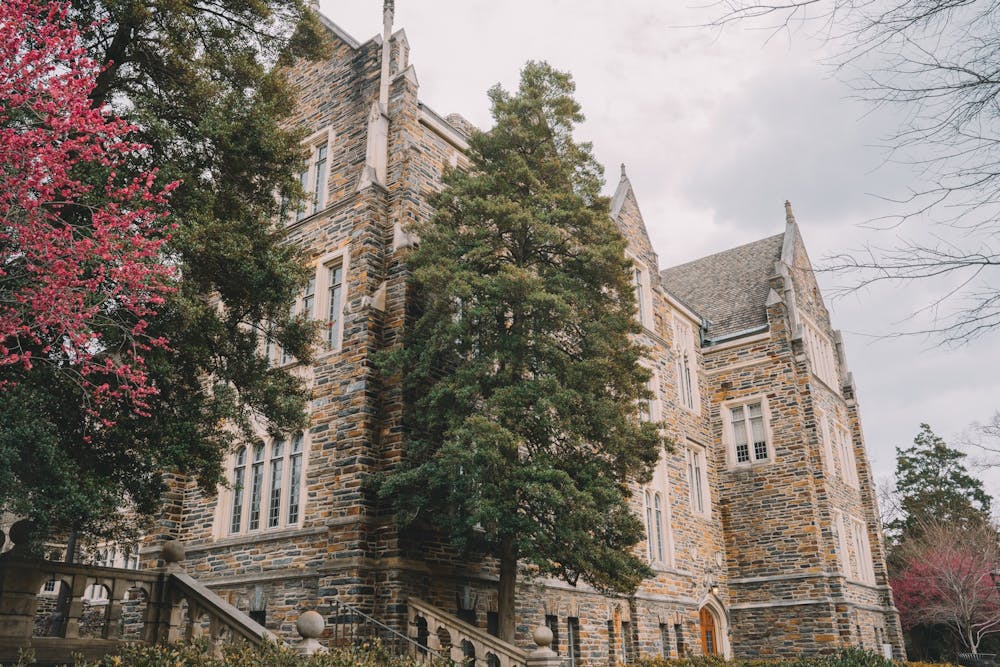With registration around the corner, consider adding a course from the newly minted Asian American and Diaspora Studies minor to your shopping cart.
On Feb. 3, the Arts and Sciences Council approved the AADS minor with an overwhelming majority. The minor is housed in the Asian and Middle Eastern Studies department and will be administered by the Asian American and Diaspora Studies Program.
The approval of the AADS minor is a result of generations of student activism. The Chinese Student Association was founded in 1971, and the Asian Students Association (ASA) was founded in 1981 as the Society for Asian American Students.
In 2016, the Asian American Studies Working Group (ASSWG) was founded. They played a crucial role in the development of the AADS program that launched in May 2018 and have been amongst the many student groups to push for an Ethnic Studies department at Duke.
“It's collective efforts both in recent years and in decades from students, faculty and staff that have resulted in any institutional change, including the AADS minor,” said senior Shania Khoo, former president of ASA and a member of ASSWG.
Khoo believes that the AADS minor is significant because the movement for its creation has always been sustained by students. It’s also the first minor of its kind in the American South, aside from Florida and Texas, according to AADS Director Esther Kim Lee, a professor of theater studies at Duke.
The AADS minor requires one introductory course—either AADS 198/History 198, Introduction to Asian American History; or AADS 201S, Introduction to Asian American and Diaspora Studies—and four electives.
AADS 201 will be offered in the fall and is listed as being taught by Departmental Staff.
Three AADS electives are available for students to take in fall 2022. AADS 232S, Asian American Theater, will be taught by Lee. AADS 290S, Special Topics in AADS: Listening to China, will be taught by Yun Emily Wang, assistant professor of music and gender, sexuality and feminist studies. AADS 364S, Race, Gender and Sexuality, will be taught by Anna Storti, assistant professor of gender, sexuality and feminist studies.
In the spring 2023 semester, the AADS Program will be offering four or five courses, and three or four of them will be brand new, Lee said.
Lee attributes all the credit of the AADS minor’s creation to students, both former and current.
“I am immensely proud that their efforts are not in vain, that they are able to see that they made this,” she said.
Lee mentioned how students were involved in the search and hiring process of last year’s cluster hire of Storti and Calvin Cheung-Miaw, assistant research professor of history.
“Students were part of a lot of the job talks and got to sit in on interviews with them. Our opinions, and we wanted to get out of professors were really, really taken to heart by the [AADS] program and the community,” Khoo said.
The approval of the AADS minor is only “the beginning,” Lee said. She wishes to do a senior hire in the 2022-23 academic year.
“I think [the AADS] program will continue to grow exponentially. In terms of the number of courses, faculty, hopefully heading towards a major departmentalization—I mean, those are the long term goals. And to be at an elite institution like Duke, and to have a minor degree program in the [United States] South is an incredible achievement,” Lee said.
As a Southeast Asian student, Khoo hopes the AADS program will incorporate opportunities in Southeast Asian identity or research. “What does it mean to think about Southeast Asian American and South Asian American identities as well as West Asian [identities], things like that?” Khoo said.
Sophomore Huiyin Zhou is an international student from China interested in transnational organizing, and she believes that the AADS program and minor don’t pertain just to Asian Americans, but also to issues related to racial justice, liberation, community building and community organizing.
Zhou is particularly interested in the conversations about diasporic politics that the AADS minor will provide. She hopes for courses related to the understanding of the role of international students in the US.
“I've often felt stuck in between just very complex geopolitical issues and multiple nationalisms, and that I don't necessarily identify with either side. I think having the AADS minor would grant a lot of space for having those kinds of critical discussions,” Zhou said.
Get The Chronicle straight to your inbox
Sign up for our weekly newsletter. Cancel at any time.
Lee emphasized that the AADS minor is not just for Asian American students—it’s for all Duke students.
“I think the minor will enhance everyone's education. It will make the Duke’s curriculum much more interesting and so much more comprehensive,” Lee said. “I want to welcome everybody to the minor.”

Katie Tan is a Trinity senior and digital strategy director of The Chronicle's 119th volume. She was previously managing editor for Volume 118.

